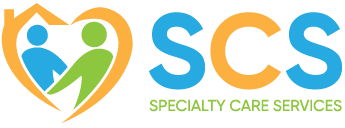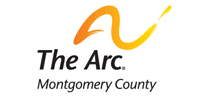Down Syndrome In-Home Nursing & Care (for Children & Adults)
Maryland, Washington, D.C., and Northern Virginia
24/7 Nurse Availability
Free In-Home Assessments
Over 25 Years of Experience
Hours:
Request Call Back
Hero Request Form
Thank you for contacting us.
We will get back to you as soon as possible.
Please try again later.
RN-Led Down Syndrome Home Care for Children, Teens & Adults
Need reliable help at home for a loved one with Down syndrome? We provide nursing assessments, personalized care plans, respite care, and 24/7 support to keep our clients comfortable and healthy at home.
Caring for children, teens, or adults with Down syndrome can be challenging, especially if they have higher-severity health & medical needs.
We designed our Down Syndrome In-Home Nursing & Care Program to meet complex medical, behavioral, and daily-living needs where life happens: at home and in the community. Our focus is to help families with skilled, reliable support that meets their goals, improves their routines, and respects their culture.
Who We Serve
We support people with Down syndrome (DS) of all ages (infancy through older adulthood) whose needs range from occasional intermittent support to 24/7 nurse-led clinical care coverage.
Many families reach out to us because their Down syndrome loved one is experiencing:
- Greater medical needs because of additional health conditions, such as congenital heart disease, hypothyroidism, diabetes, epilepsy, or frequent respiratory infections.
- Significant changes in their health or behavior that require greater levels of care, including new sleep disturbances, dementia symptoms, or escalating behavioral challenges.
- Feeding and swallowing difficulties (dysphagia) that may require specialized feeding routines, thickened liquids, or feeding-tube support.
- Post-hospital recovery after surgery, pneumonia, or other acute health events, where close nursing oversight is critical to avoid readmission.
- Mobility limitations or fall risks require hands-on transfer assistance and home safety adjustments.
- Hearing or vision loss makes daily routines and communication more difficult without caregiver prompts and device support.
- Caregiver burnout occurs when family members can no longer manage round-the-clock supervision, lifting, or complex care tasks alone.
If any of these describe your loved one, we can help.
Down syndrome in-home care is common: about 1 in 700 of those in the U.S. have Down syndrome, with between 39-63% of them using some form of in-home care and support. Since the 1980s, people with DS have been living longer (about a 60-year average lifespan today), so families in MD/DC/VA increasingly look for home-based care. [4]
Enhancing Life Quality with Down Syndrome Care
Down Syndrome Healthcare Needs Throughout Life
Infancy (0–12 months)
Common needs:
- Feeding & swallowing problems (dysphagia)
- Congenital heart disease post-surgery
- Hearing & ear complications.
How we help:
- Safe positioning and airway routines
- Tube-feeding support if needed
- Tracking weight, oxygen levels, and medications
- Provide early intervention for hearing & ear problems
Early childhood (1–5)
Common needs:
How we help:
- CPAP and nighttime breathing support
- Medication management and monitoring
- Toileting & Incontinence plans and care
- Diet & hydration coaching
School-age & adolescence (6–17)
Common needs:
- Obstructive Sleep Apnea (OSA) persists.
- Hearing & vision complications.
- Behavior and mental-health comorbidities. [7]
- Social complications.
How we help:
- Structured activities of daily living support
- Medication management
- School & clinic appointment escort
- Community/social integration and support
- Red-flag symptom observation and care
Young–mid adulthood (18–39)
Common needs:
- OSA becomes more prevalent
- Hypothyroidism persists
- Weight & metabolic health concerns
- Accumulating hearing/vision issues.
How we help:
- Nurse-led chronic-disease checks and vitals
- Health coaching
- CPAP adherence workflows
- Home health aide support for community access and employment routines.
Midlife & older adulthood (40+)
Common needs:
- Alzheimer’s/dementia risk is high at around 60 years of age [9]
- Neuropathology typically presents by 40 [10]
- Seizures and epilepsy are much more common [11]
How we help:
- Dementia/Alzheimer’s trained caregivers
- RN oversight for complex meds and comorbidities
- Seizure & epilepsy home care
- 24/7 coverage or respite short-term care available
How We Provide Care
We combine RN-led care with trained home health aides/personal care aides to cover the full spectrum of DS needs:
- Skilled nursing / RN visits: assessments, vital checks, care planning, feeding-tube care; seizure protocols, catheter or ostomy care, wound & injury care; medication management & administration.
- Feeding & dysphagia support: carry out prescribed plans from physicians, training on safe feeding positions, pacing, thickener use, and aspiration-prevention strategies. There are high mortality rates due to silent aspiration for those with Down syndrome.
- Sleep & breathing support: It’s estimated that 53–76% of children and >80% of adults with Down syndrome have sleeping and breathing problems. CPAP or BiPAP routines, perform equipment hygiene, develop and follow along with a bedtime structure, and OSA red-flag monitoring.
- Behavioral/communication support: carryover of therapy strategies, visual schedules, and AAC device prompts.
- Activities of daily living: bathing, dressing, meals, toileting plans, light housekeeping, meal prep, and appointment escorts.
- Transition & post-hospital care: teaching, med reconciliation, vitals, and follow-ups to prevent readmissions.
- Family training & respite: reduce caregiver strain while maintaining consistent routines.
What Areas We Serve – And Why
We serve Maryland (Montgomery, Prince George’s, Howard, Frederick), Washington, DC, and Northern Virginia (Fairfax, Arlington) for a reason: there’s a high need for care with thousands of families who are looking for in-home support.
Down Syndrome Local Numbers & Needs:
- Bullet text
- Bullet text
- Bullet text
- Bullet text
- Bullet text
- Bullet text
- Bullet text
- Bullet text
- Bullet text
- Bullet text
| County / Jurisdiction | Estimated residents with COPD | Estimated residents with high-severity COPD |
|---|---|---|
| Montgomery County MD | 709 | 333 |
| Prince George’s County MD | 635 | 298 |
| Howard County MD | 228 | 107 |
| Frederick County MD | 201 | 94 |
| Washington DC | 455 | 287 |
| Fairfax County VA | 778 | 373 |
| Arlington County VA | 157 | 75 |
| Totals | 3,163 | 1,567 |
The research shows that thousands of individuals and families in the areas we serve have healthcare needs that often require consistent care, including in-home nursing and care. Our Down Syndrome Home Nursing & Care Program provides the essential care that supports these families to feel safe, less stressed, and more comfortable at home.
- Children’s National (Washington, DC) runs the region’s only dedicated Down Syndrome Clinic, offering multidisciplinary care and coordination. We routinely collaborate and accept referrals. [14]
- Kennedy Krieger Institute (Baltimore/MD) operates a Down Syndrome Clinic & Research Center serving clients from birth through adulthood with home/community therapy options—another frequent partner for care-plan carryover. [15]
Down Syndrome Professionals & Providers We Collaborate With (or Recommend)
- Primary care & genetics (coordination, preventive care)
- Cardiology (congenital heart disease follow-up)
- Speech-Language Pathology (SLP) (feeding, dysphagia, communication)
- Occupational & Physical Therapy (motor, sensory, home safety)
- Pulmonology & Sleep Medicine (OSA; CPAP/BiPAP)
- ENT & Audiology (ear care, hearing aids)
- Gastroenterology (GERD, constipation, celiac, tube-feeding)
- Neurology (seizure care, cognitive change)
- Behavioral health/psychology (routines, coping)
- Dentistry & vision providers (device care, routine maintenance
Why Families Choose In-Home Care vs Group Homes
Many of our Down syndrome clients tell us they prefer utilizing in-home care because we:
- Keep familiar routines, siblings, and school/work/community life intact
- Layer in skilled nursing and trained aides as needed
- Give tighter and closer oversight over health conditions and complications
- Can make faster adjustments to care plans
- Are flexible with your schedule, and can provide care as needed (not all-day like most group homes)
- Provide the least disruptive option for managing:
- Complex feeding needs
- OSA equipment and CPAP/BiPAP routines
- Seizure safety plans
- Midlife cognitive changes (e.g., dementia in Down syndrome)
- Strict dysphagia/swallow plans
- Frequent respiratory infection monitoring
Coverage & Policy Information
If you utilize Medicaid, long-term care insurance, or want to sign up for private pay, here’s our financial information:
- EPSDT (Medicaid) for under-21: By federal rule, children and adolescents enrolled in Medicaid are entitled to all coverable, medically necessary services to “correct or ameliorate” conditions—including home health and private duty nursing when ordered. This is the backbone for pediatric in-home nursing (tube-feeding, dysphagia plans, complex care). [16]
- Virginia: The EPSDT Private Duty Nursing (PDN) Manual spells out that PDN can be authorized for medically necessary, ongoing nursing in home or community settings for members under 21.
- Maryland: State regulations require MCOs to provide EPSDT services, including private duty nursing when medically necessary, to prevent, treat, or ameliorate problems—subject only to medical-necessity limits. [17]
- District of Columbia: The IDD/IFS waivers list In-Home Supports, Personal Care, Respite, and Skilled Nursing among covered services for eligible adults; under-21s get skilled nursing via the state plan/EPSDT. [18]
Bottom line for families: if your loved one with DS has medically necessary needs at home (e.g., feeding tube, dysphagia plan, oxygen/CPAP, seizure protocols), these frameworks are how we secure and coordinate covered services.
How It Works Step-by-Step
- Nurse-led assessment (First 24-48 Hours).
- A nurse meets you at home to review: diagnoses, medications, equipment such as CPAP or feeding tubes, swallow plans, safety risks (falls, wandering), behavioral supports, therapy orders, and coverage options. We’re comfortable with same-day starts when medically urgent and coverage allows.
- We develop your personalized care plan.
- We build a written plan that integrates medical orders, SLP/OT/PT recommendations, and your family’s routines. Clear goals and action plans are listed with who does what and when.
- We match a caregiver with your loved one and begin in-home support.
- We assign both nurses and home health aides, as well as backup staffing, for reliability. We pick caregivers based on your loved one’s needs.
- We provide regular care at your home.
- We handle meds, tube feeds, CPAP/BiPAP, ADLs, behavior-support carryover, and appointment support. We leave notes you can read in plain language.
- We do ongoing nurse check-ins.
- The RN supervises staff, documents progress, refreshes training, and updates the care plan after hospital/clinic visits or when needs change.
- Coordination & authorizations.
- We work with local hospitals, your PCP/specialists, school teams, and payers to keep services authorized and aligned with your goals.
Sources
- Children’s Hospital Colorado.
Feeding and Swallowing Difficulties in Children with Down Syndrome.
https://www.childrenscolorado.org/conditions-and-advice/conditions-and-symptoms/conditions/down-syndrome/feeding-and-swallowing
Accessed September 2025. - National Down Syndrome Society (NDSS).
Sleep & Obstructive Sleep Apnea in Down Syndrome.
https://ndss.org/resources/sleep-issues-down-syndrome
Accessed September 2025. - PMC – National Library of Medicine.
Early-Onset Alzheimer’s Disease in Adults with Down Syndrome.
https://www.ncbi.nlm.nih.gov/pmc/articles/PMC4474335
Accessed September 2025. - Centers for Disease Control and Prevention (CDC).
Facts About Down Syndrome.
https://www.cdc.gov/ncbddd/birthdefects/downsyndrome.html
Accessed September 2025. - DSMIG (Down Syndrome Medical Interest Group – UK).
Hearing Issues in Down Syndrome.
https://www.dsmig.org.uk/information-resources/hearing
Accessed September 2025. - NDSS.
Thyroid Disease and Down Syndrome.
https://ndss.org/resources/thyroid-disease-down-syndrome
Accessed September 2025. - PMC – National Library of Medicine.
Behavioral and Mental Health in Down Syndrome.
https://www.ncbi.nlm.nih.gov/pmc/articles/PMC8463792
Accessed September 2025. - Children’s National Hospital.
Down Syndrome Clinic.
https://childrensnational.org/departments/down-syndrome-clinic
Accessed September 2025. - Kennedy Krieger Institute.
Down Syndrome Clinic & Research Center.
https://www.kennedykrieger.org/patient-care/centers-labs-programs/down-syndrome-clinic-research-center
Accessed September 2025. - Medicaid.gov.
EPSDT – Early and Periodic Screening, Diagnostic, and Treatment.
https://www.medicaid.gov/medicaid/benefits/early-and-periodic-screening-diagnostic-and-treatment-benefit
Accessed September 2025. - Legal Information Institute (Cornell Law).
Maryland EPSDT Requirements.
https://www.law.cornell.edu/regulations/maryland
Accessed September 2025. - DC Department of Health Care Finance.
IDD/IFS Waiver Services.
https://dhcf.dc.gov/service/home-and-community-based-services-hcbs-waivers
Accessed September 2025.

CP #1 Headline
CP #1 Body
CP #1 CTA Lead-in
Not valid with any other offers or promotions. Restrictions apply.
Must mention this coupon at the time of scheduling.
How do I know if my loved one with Down syndrome needs in-home care?
If your loved one has any of the problems listed in this checklist, they qualify for in-home care:
- My loved one has feeding or swallowing difficulties (dysphagia) that make mealtime stressful or unsafe.
- They need medication reminders or administration to stay on schedule and avoid missed doses.
- They’ve had a recent hospital stay or surgery, and I’m worried about recovery or readmission at home.
- They require nighttime support for CPAP/BiPAP, obstructive sleep apnea, or breathing concerns.
- They have mobility limitations or fall risks that make transfers, stairs, or daily movement unsafe.
- They show new changes in behavior, memory, or sleep that are hard to manage without help.
- They need help with daily living tasks like bathing, dressing, toileting, or meal preparation.
- They have seizures or epilepsy that require close monitoring and a safety plan.
- They struggle with hearing or vision loss and need extra prompts or support with communication.
- I feel overwhelmed, burned out, or unable to keep up with round-the-clock caregiving.
What documentation is needed to begin in-home care for Down Syndrome or Developmental Disabilities?
No formal documentation is required – you can simply give us a call to set up a complimentary initial assessment. If you have a referral from a hospital or physician, please provide us with that. If you are utilizing long-term care insurance or Medicaid, we can help you with submitting that documentation.
Do you offer support for transitioning from pediatrics to adult care?
Yes – we can develop a structured plan to help your loved one transition care throughout their life based on their needs.
What’s your minimum visit length?
Our standard minimum is 4 hours per weekday or 6 hours per weekend. For specific cases, custom schedules can be arranged.
Can you start care within 24–48 hours after we contact you?
Yes – we can schedule a nursing assessment within 24-48 hours.
Do you provide nighttime care for those with Down Syndrome?
Yes – those with Down syndrome often use nighttime caregivers if they have epilepsy, vision problems, dementia/Alzheimer’s, or other chronic health conditions.
Reviews



